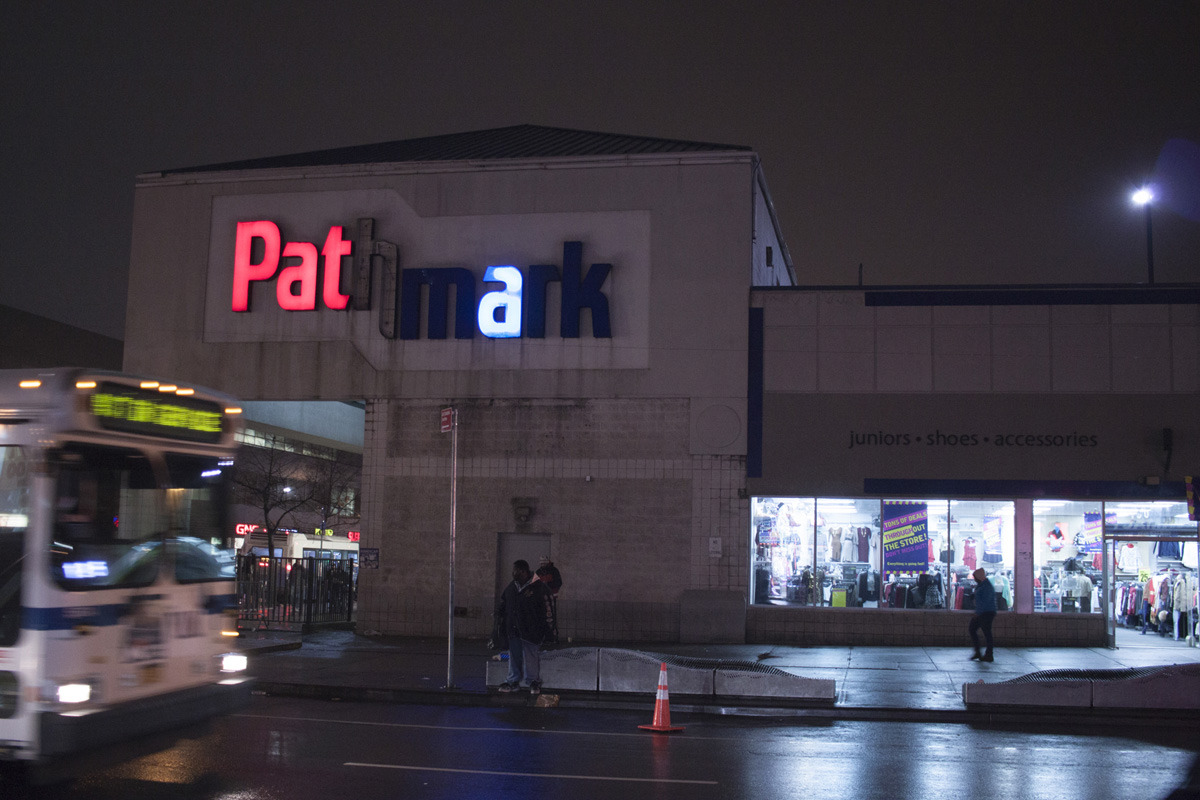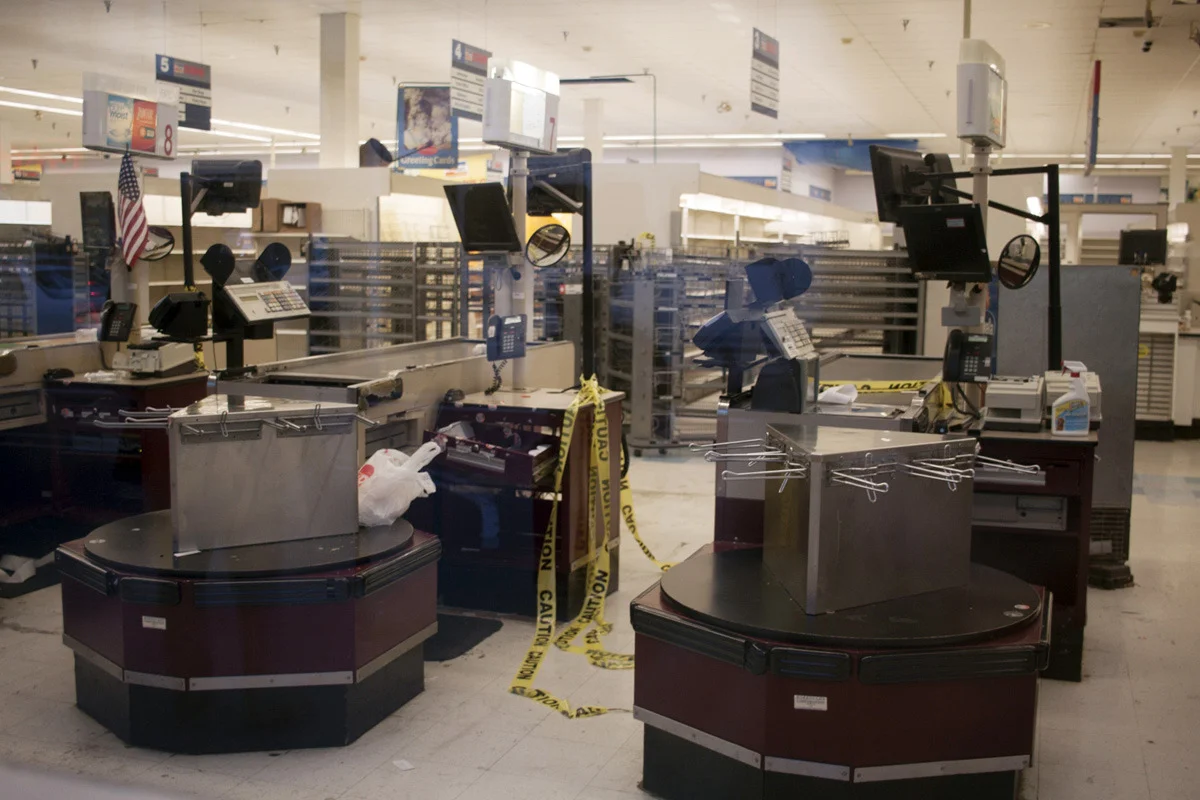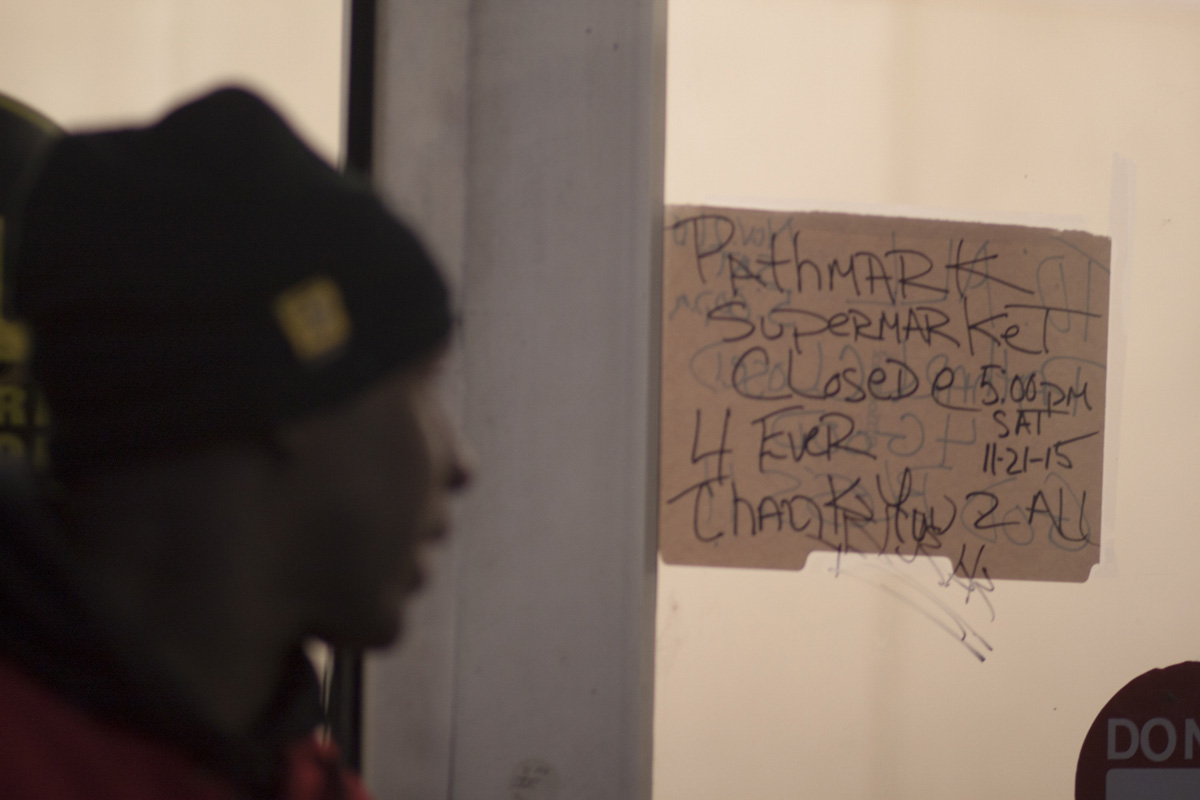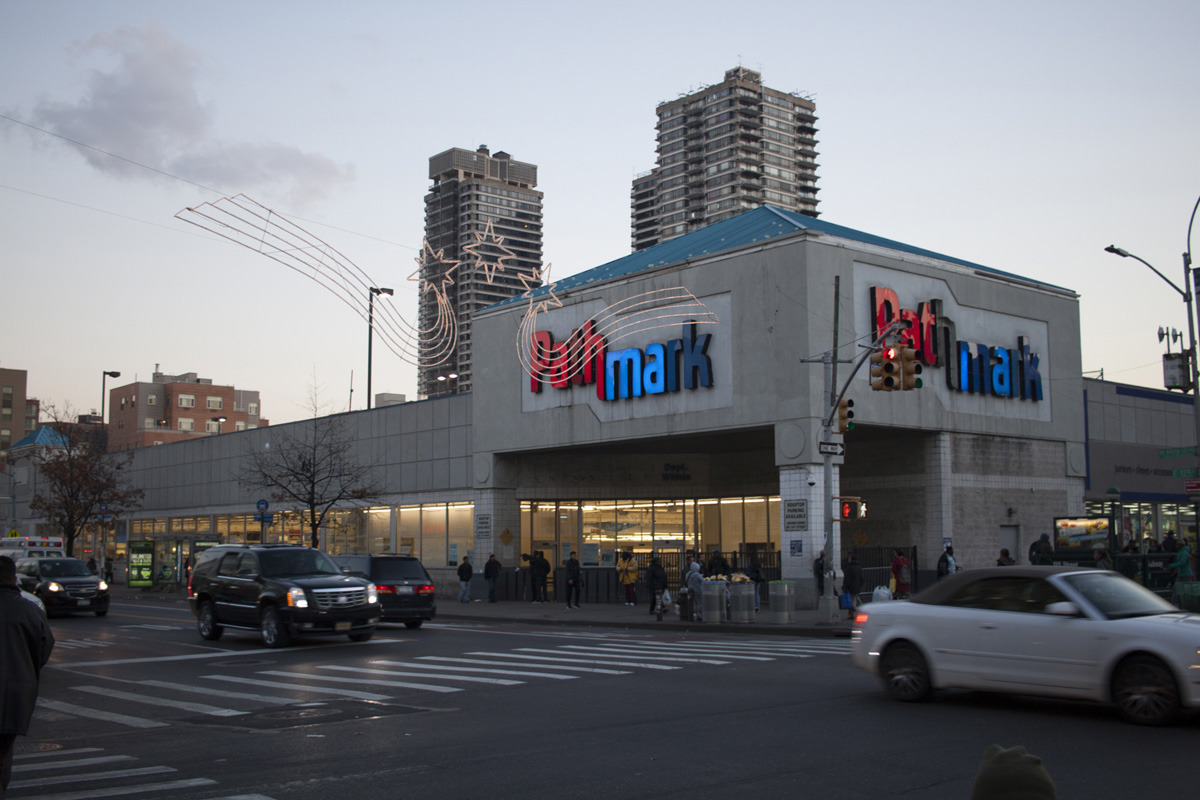East Harlem Pathmark Shutters, Creating Food Desert
Text and Photos by Victor Vaiana
East Harlem’s Pathmark, which sits at the corner of 125th Street and Lexington Avenue, closed after 16 tumultuous years as a vital resource to the community. The nearest markets are located several blocks from the subway and bus stops that populate Pathmark’s corner and are too small to service the local population. The store’s absence has made the neighborhood a food desert.
The supermarket had functioned as a hub of services for the community, also housing a pharmacy and branch of Carver Federal Savings Bank. The corner’s public transit made the store accessible to customers from the Upper East Side to the Bronx.
After Pathmark’s parent company A & P filed for bankruptcy, workers knew the store’s shuttering was imminent. They hoped the store would remain open through the busy holiday season, but it closed the Saturday before Thanksgiving.
Local community advocate Alice Wragg Kornegay began fighting for a supermarket in East Harlem in 1980. As a founding member of non-profit East Harlem Triangle, she helped initiate a project with the city government and the Abyssinian Development Corporation as partners. In 1996, she passed away after suffering a heart attack during a meeting with a community group. When the store opened in 1999, it was dedicated to her legacy.
The building was co-owned by the Triangle and Abyssinian. The building’s board of directors consisted of four members from both organizations so they would have equal say in making decisions.
Extell Development Corporation bought the property in April 2014 for $39 million. The EHT estimates its stake in the building is valued at $2 million dollars and are taking the Abyssinian Development Corporation to court for failing to pay out this share. The discovery of a $2 million dollar deposit from Extell revealed that Abyssinian also initiated negotiations for the sale without notifying the board members from East Harlem Triangle.
The ADC began selling off its properties during the recession to compensate for budget shortfalls. The corporation, which was founded in 1989 to stimulate development in Harlem and serve the community, has also cut social services like their Head Start program. This fall, the city pulled contracts with the organization and state officials have begun investigating their finances after Abyssinian failed to file annual tax returns for three years.
Extell, which manages luxury properties throughout Manhattan, has not yet announced plans for the space. Their purchase included approximately 300,000 square feet of residential air rights.
Magnum Foundation produced an installation of Matt Black’s The Geography of Poverty on 110th Street as a part of The Value of Food: Sustaining a Green Planet, which is on view until April 3, 2016 at the Cathedral of St. John the Divine. Inspired by the installation in the neighborhood where they go to school, Nina Berman’s students at the Columbia Journalism School looked locally at economic disparity in upper Manhattan.






